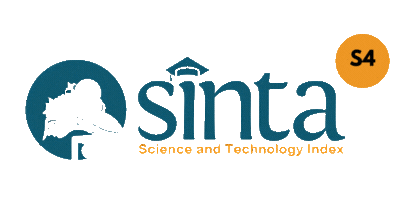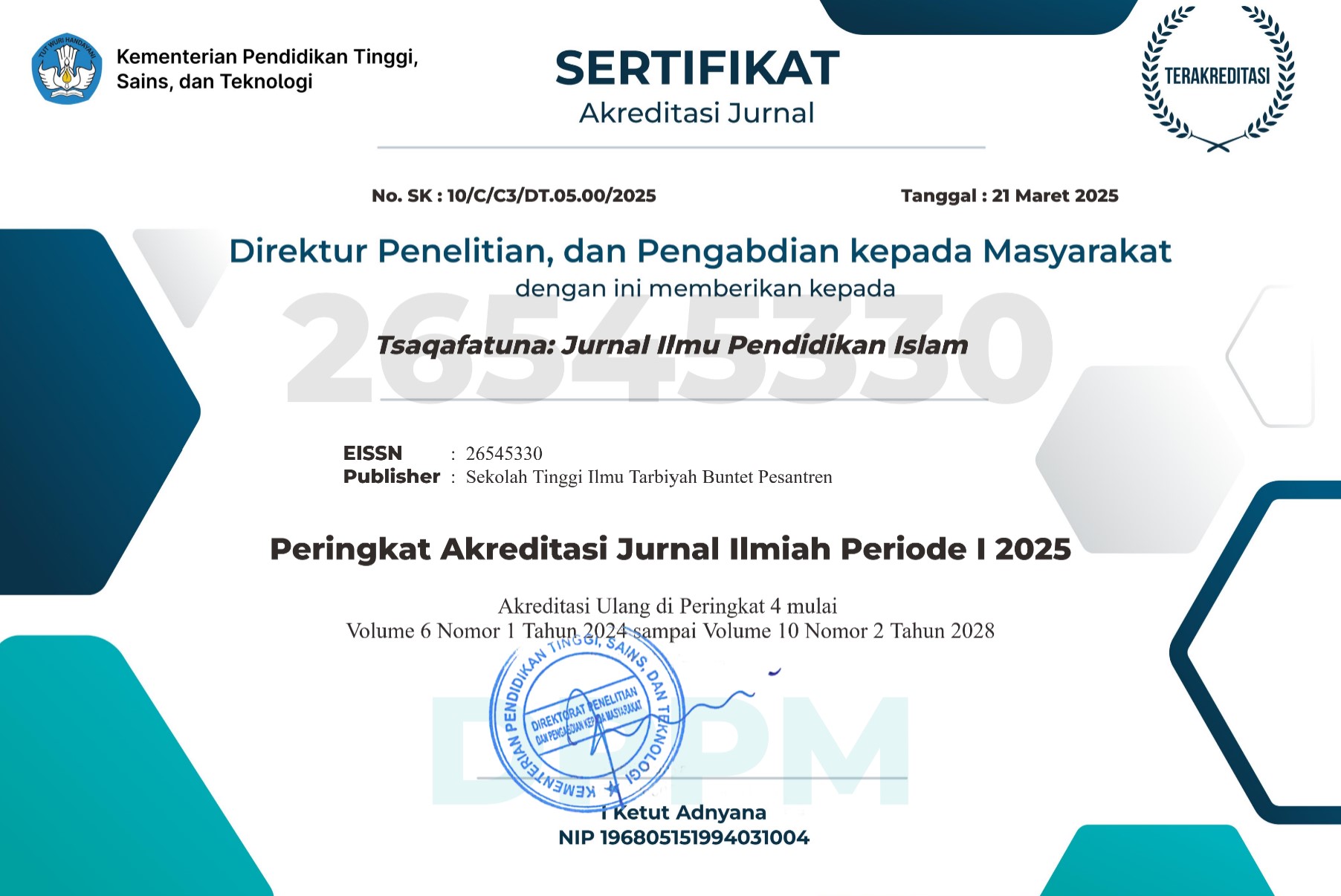Orientasi Kurikulum Pondok Pesantren Nasy’atul Muta’allimin Dalam Mengembangkan Karakter Santri
DOI:
https://doi.org/10.54213/tsaqafatuna.v4i2.142Keywords:
Keywords: Curriculum Orientation, Islamic Boarding School, CharacterAbstract
ABSTRACT
The Islamic Boarding School curriculum is seen as a plan of learning activities for students as a set of goals to be achieved. The meaning of curriculum can also refer to a document containing the formulation of objectives, teaching materials for teaching and learning activities, schedules and evaluations. In addition, the curriculum can also be described as a written document as a result of mutual agreement between curriculum makers and education policy holders with the community that covers a certain scope, be it a school, district, province or the whole country.
As an Islamic educational institution that grows and is recognized by the surrounding community with a boarding system (pondokan) where the students receive religious education through a recitation system or madrasa which is fully under the sovereignty and leadership of one or several kyai with charismatic and independent characteristics in In all things, Islamic boarding schools thrived on Indonesian soil long before Indonesia's independence.
The approach used in this research is a qualitative approach, namely research that uses a natural setting, with the intention of interpreting the phenomena that occur by involving various existing methods.
The results of this study indicate that the orientation of the curriculum at the Nasy'atul Muta'allimin Islamic Boarding School in developing the character of students is to accommodate students who focus on learning two curricula, namely the pesantren curriculum and the general education curriculum. The pesantren curriculum material taught is sourced from the yellow book which includes; religious laws, the science of monotheism, morals and Arabic.











